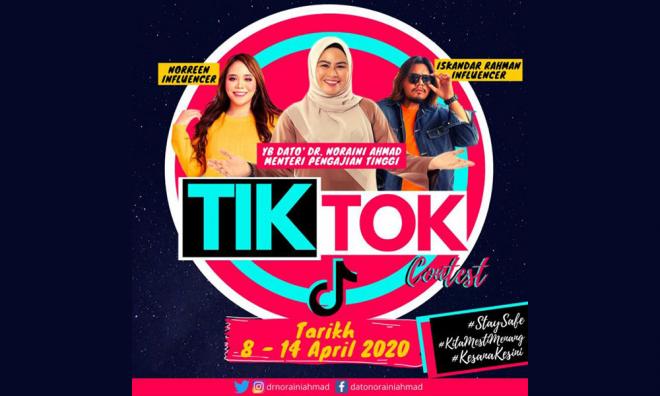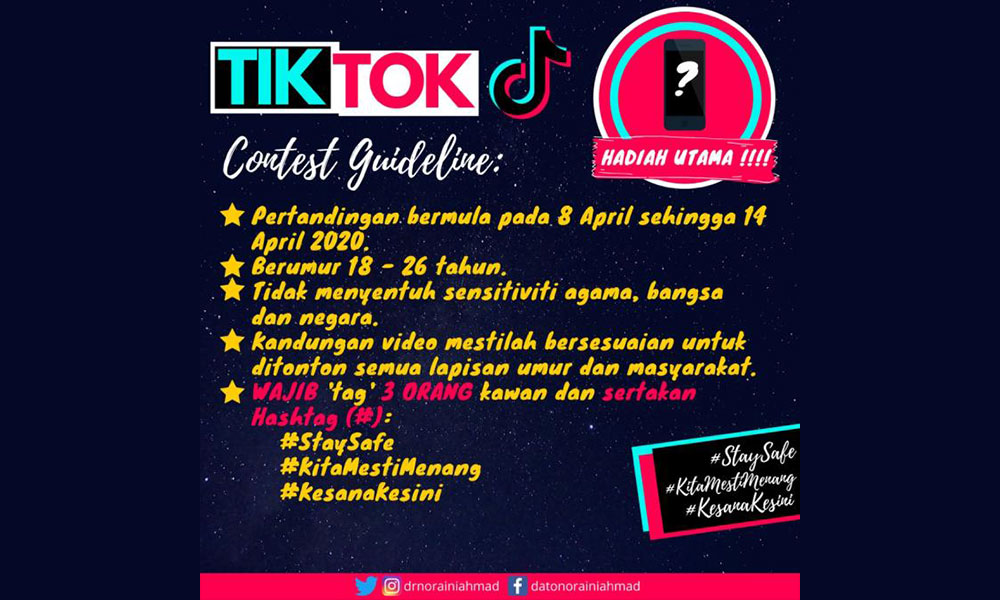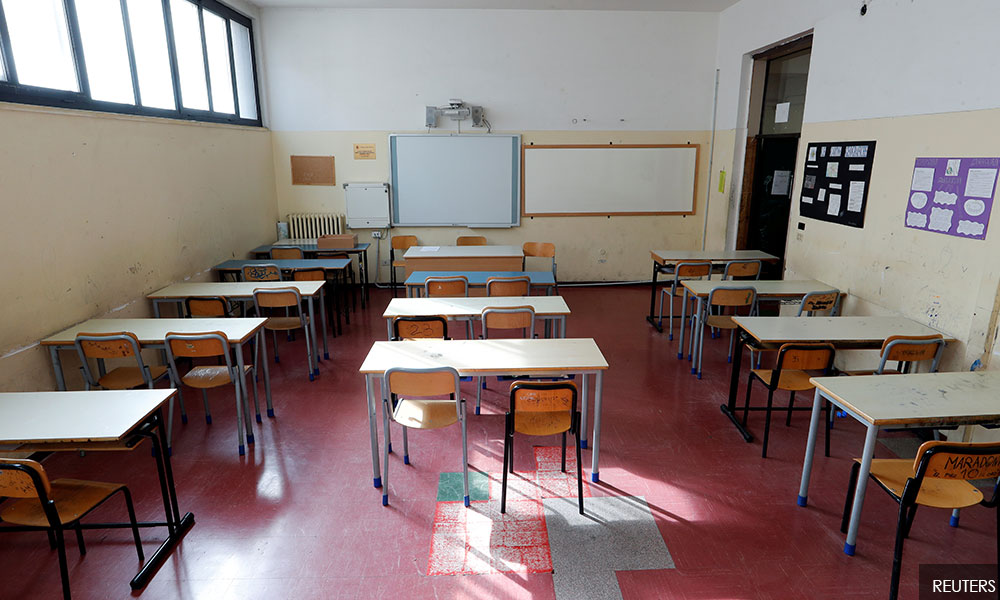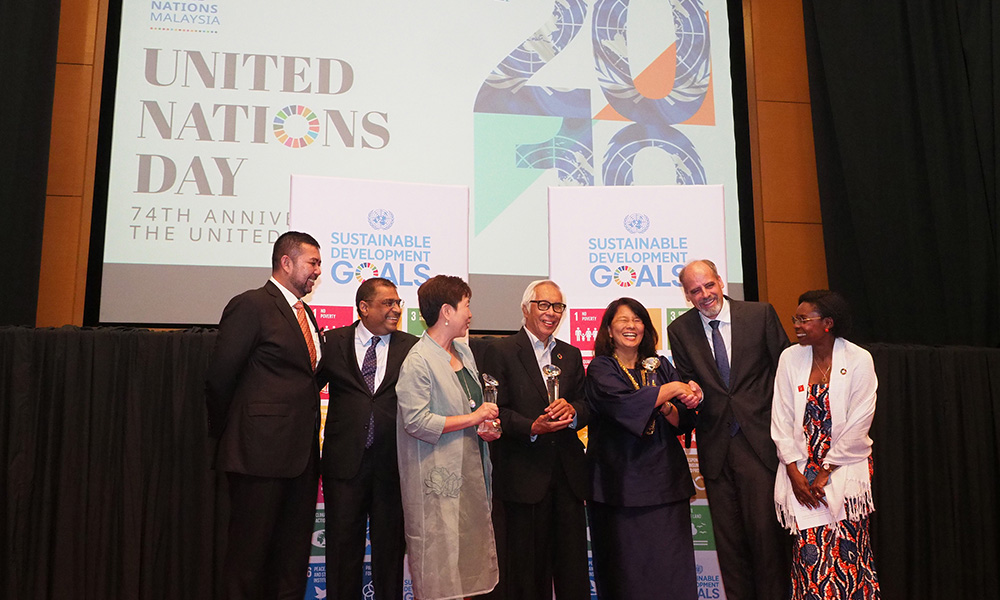
While our doomsday clock in this time of the coronavirus pandemic goes tick-tock, Malaysia has new TikTok leadership in its Education Ministry.
Don't our students in higher education deserve better? More intellectual stuff? Via cyber-education? We went from the black shoes policy to Tik Tok Ideology. We thought it would be better frontier leadership offered through the appointment of backdoor ministers.
We might be seeing a lowering of the standards of higher education if this trend in mediocre thinking continues. Politicians think they can just secure a well-paid position through political manipulations and sit there watching TikTok, or play with Doraemon dolls or even worse, do nothing much while Putrajaya and the world are dying from the pandemic.
From black shoes to TikTok?
In the previous administration, we were embroiled in the debate over black shoes, jawi script, and how to prevent schools turning into “medan dakwah,” or the battleground for radical Salafi-Wahabi Islamisation. We had that for 18 months until the minister was removed from the position. We thought things might change with a 94-year-old interim minister (re)-taking over.
Things appeared to remain the same. The same debate over race and religious emphasis in education. Then came, of course, the change of government via some strange backdoor strategy which brought back the Umno-PAS ideology.
So much for respecting the voters’ hard work. And now we have the coronavirus eclipsing everything. Now too, we have a TikTok ministry of higher learning surfacing. Finally, we now we have the coronavirus eclipsing everything.
Malaysian university students don't need TikTok to kill time now. That is a platform for young people who do not have anything better to do than engage in the production of artefacts of no value. Our university students, especially at a time where they can engage in solitary learning like scholars of the Medieval period, need to be immersed in deep learning, designed by good teachers, guided by a future-proof curriculum. Waste not the time we need to educate society continuously.

Coronavirus can come and go. New strands may emerge every now and then. But our thinking must change in examining causes and consequences, future reactions, regenerate what has worked, rethink ways of seeing, resetting society. For our survival as species.
Malaysia prides herself with the Multimedia Super Corridor, Cyberjaya, and cyber this and that - this is the time to show that the technology and techniques for remote learning are already in place for schools and universities so that learning can continue.
The Education Ministry cannot rely on a nationwide "TikTok Competition" to especially kill (university) students' boredom. That's elementary, trivial, and does not add value to a nation's goal of a learning society.
Education is a serious business that requires systemic, systematic, and strategic considerations to create a progressive and intelligent society able to weather any storm of any period, such as in the present moment we are in.
And that paradigm or mould of creation must begin with what we put in the brain and mind of the young in school and the young men and women in the universities. Education is a deliberate act of organic-cognitive farming, not an after-thought for a society plagued with this and that economic-ideological entrapment.
Anticipatory thinking based on futurism needed in managing change that can happen any time. The "what if-what-then" question must always be in the mind of strategic thinkers and organisational leaders for change to be seen as an opportunity, not a threat. The Ying-Yang of our social existentialism.
Here are our practical questions: Schools in Malaysia too might be closed for a long time, until a vaccine is developed. How are schools continuing learning? Is a system of cyber-education or distance learning in place? Are we prepared for a total paradigm shift, Ministry of Education?

Deep thinking, deep learning
These few weeks, if one is at home, ought to also be a time of reflection. In this time of the coronavirus, I find comfort and safety in the writings of Henry David Thoreau, the poetry of Keats, Shelley, Wordsworth, the thoughts of Lao Tzu, and even the idea of reality in Bhagavad Gita, and the inner worlds within us proposed in the Buddhist scriptures, and Sufi texts. And of course, too from my memories of growing up in a village in Johor. They help me with deep thinking and deep breathing.
Our ministers need to think deep.
Instead of thinking about another TikTok competition, why don’t the ministry assume the proper leadership that would guide our students to think of dead serious matters, through deep thinking and deep-structuring learning?
Below are themes of deep thinking I am offering:
- Privatisation of medicine, health and human services, the greed of big pharmaceutical companies, the corporate race to develop the vaccine - these are symptoms of a neo-liberal philosophy gone diseased. The powerless lose.
- Ironically, we must ask this question: Do we want to go back to "normal"? When the old world order is a system plagued with inequality, crowding of cities, pollution a-plenty, environmental destruction endlessly, illegal-border-crossing dangerously? Greed as philosophy?
- In times of trouble, huge corporations beg for bailouts from governments, in times of peace they keep their huge profits in those islands called save havens. Governments are carrying the Keynesian burden of the greed of the trillion-dollar corporations!
- The pandemic revealed the total failure of the neo-liberal, free enterprise, cut-throat corporate capitalism whose ideology is a neo-imperialist version of colonialism. It reveals the failure to provide for the poor. The horror of Friedmannian grip globally.
Today is a period of reaction. To put a bandage on the wounds of war. To beg for a ceasefire with an enemy we can't see. Until a vaccine is developed, mass-produced, shared in collaboration as a dying and diseased global community, we must think regeneration.
Deep questions for our university students
We must guide the young to think of these questions:
What has happened to our world since the outbreak of the coronavirus? How complex has the world become as we are experiencing it now? What is the cause - was it a natural occurrence? Or a biological weapon unleashed? What are the consequences we are experiencing in virtually all fields of human activity?
What is breaking down? What is gradually being built? Is this a total collapse of the global capitalist system? The emergence of a new form of global socialism?

What will happen to the United Nations Sustainable Development Goals? What will sustainability mean now as it relates to human rights, peace and justice? Better ideas than TikTok creations for students under lockdown/MCO-learning can be offered as independent learning plans to explore contemporary themes as we enter a post-Covid-19 era.
Below are a few:
- Global economy and employment.
- Cities and urbanism.
- Global health infrastructure.
- Travel industry and tourism.
- Human rights and access to healthcare.
- Future of education and its global structure will change.
- The environment and climate change.
- Nature of work and the behaviour of corporations.
- The ongoing trade war between China and the US.
- Technology and cyber-culture in all aspects of living.
- Future of wars (conventional, chemical, biological).
- Impact of "social distancing".
- Social revolutions post-Covid-19.
- Religion, spirituality, or the loss or strengthening of faith.
- Family dynamics, social interactions, and the idea of work and leisure.
- Nationalism and the national economy.
- Global cooperation and global conflict.
- Global terrorism and the bio-weapon.
Those are some of the themes of radical change students can be guided to explore in whatever field they are studying. These are essential questions of our time.
These need to be in the mind of both university and school educators as premises and previews and foundational ideas in designing curriculum at the time of grave emergency such as this time of pandemic we have been plunged into.
TikTok competitions can wait. Unless that is another trademark of 21st-century educational reform the current ministry wishes to be proud of. To compete with the previous administration’s black shoes and Salafi-Wahabi philosophy.
I am sure that is not the case.
Because this is a ministry of higher education.
One that is not run by Doraemons.
AZLY RAHMAN is an academician, international columnist and author of seven books available here. He holds a doctorate in international education development and Master’s degrees in six areas: education, international affairs, peace studies, communication, fiction and non-fiction writing. He is a member of the Kappa Delta Pi International Honor Society in Education. Twitter @azlyrahman. More writings here. - Mkini


No comments:
Post a Comment
Note: Only a member of this blog may post a comment.